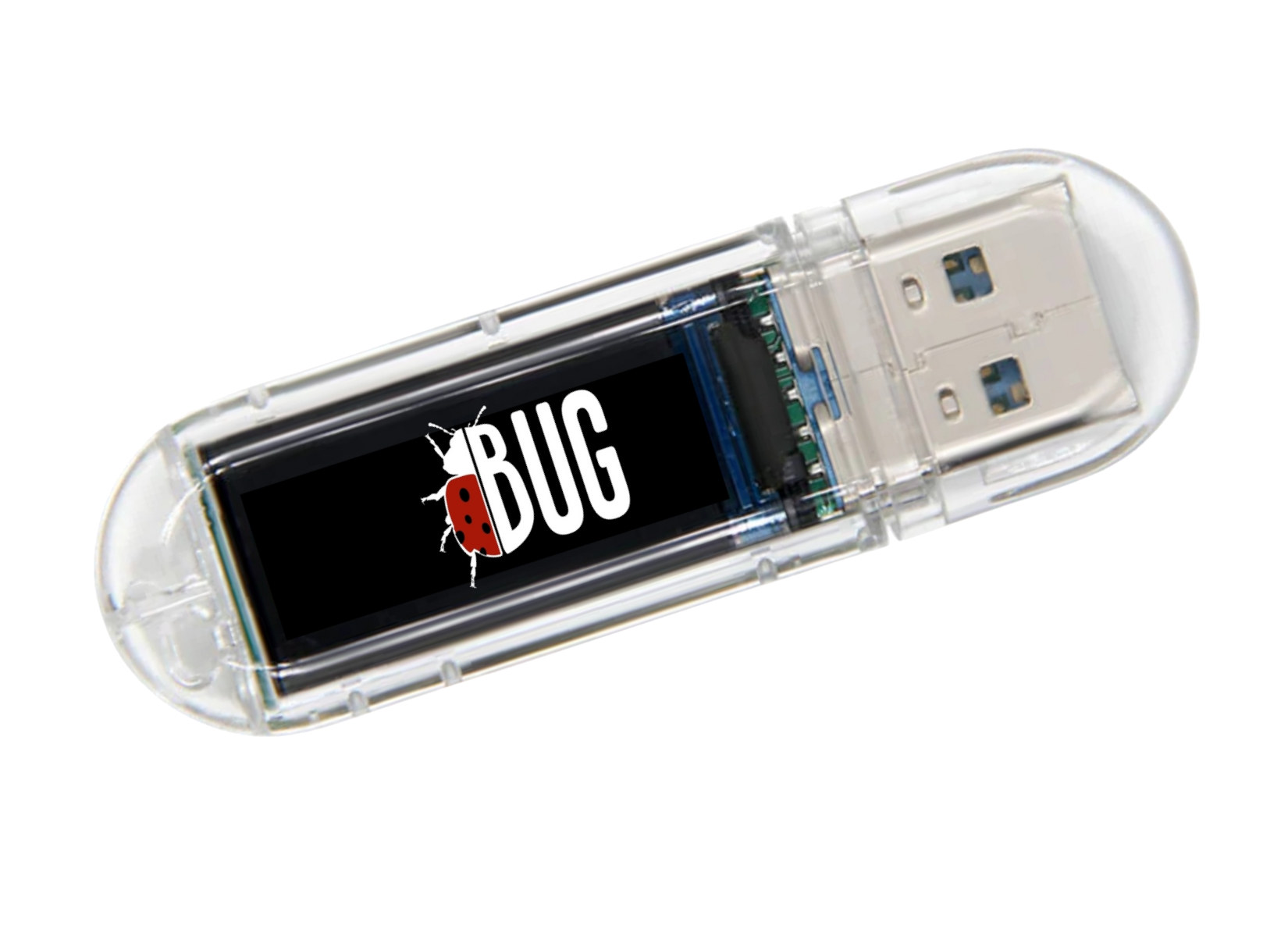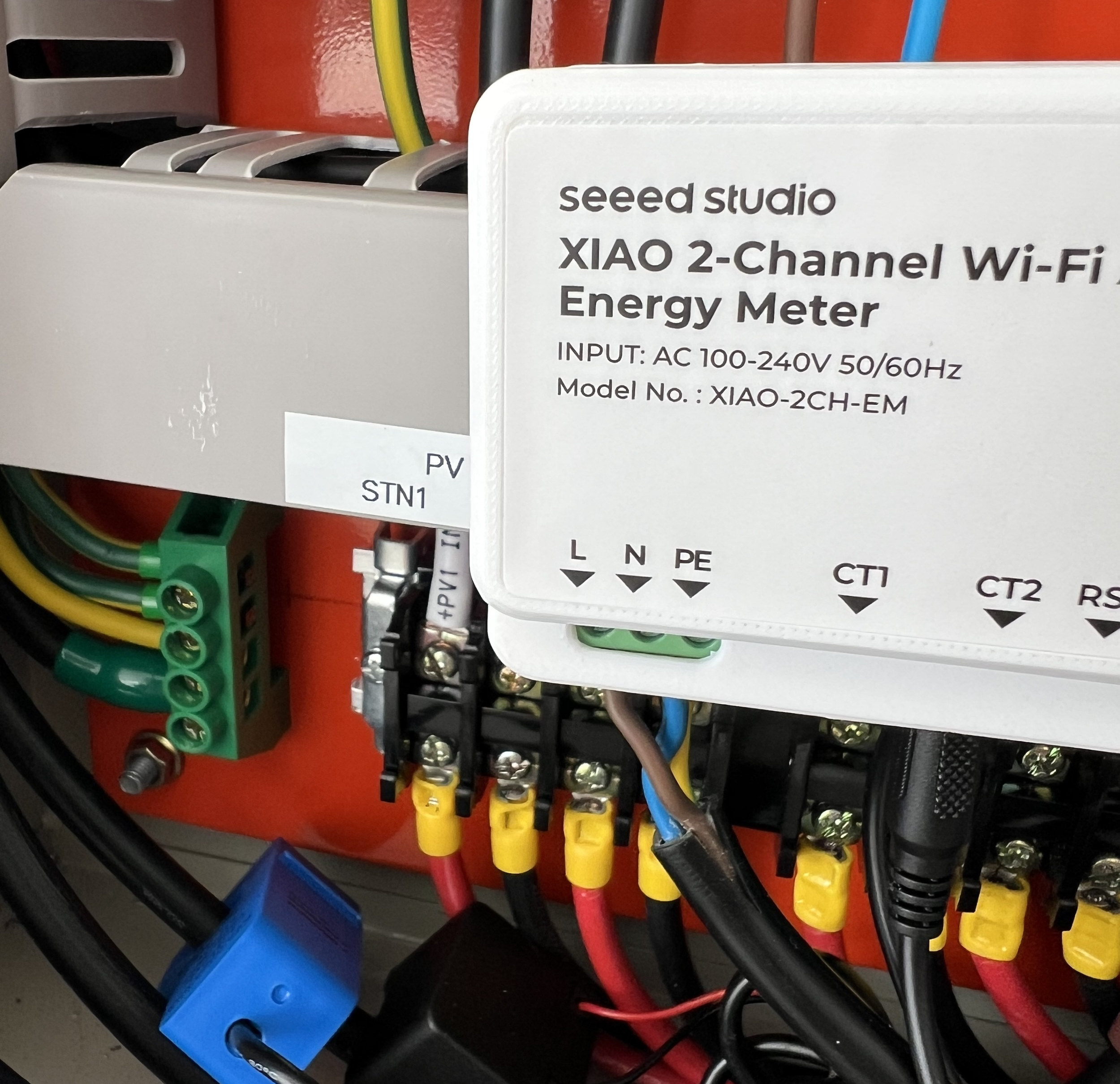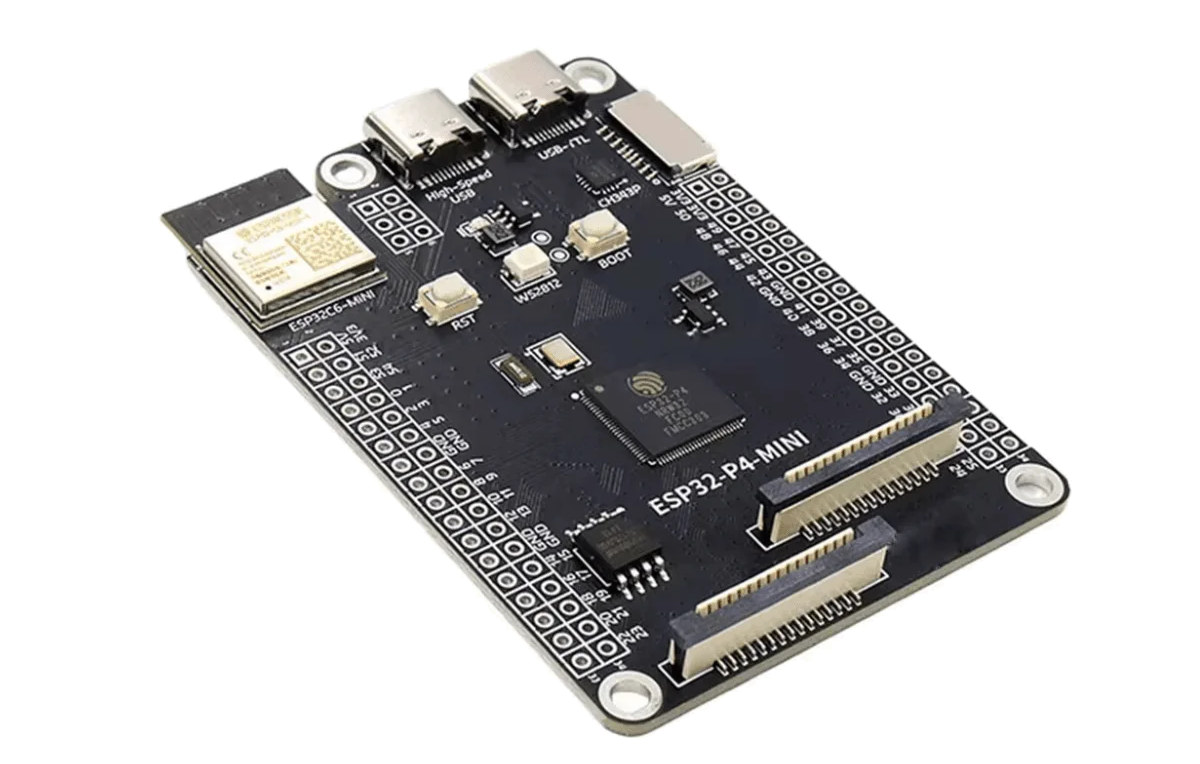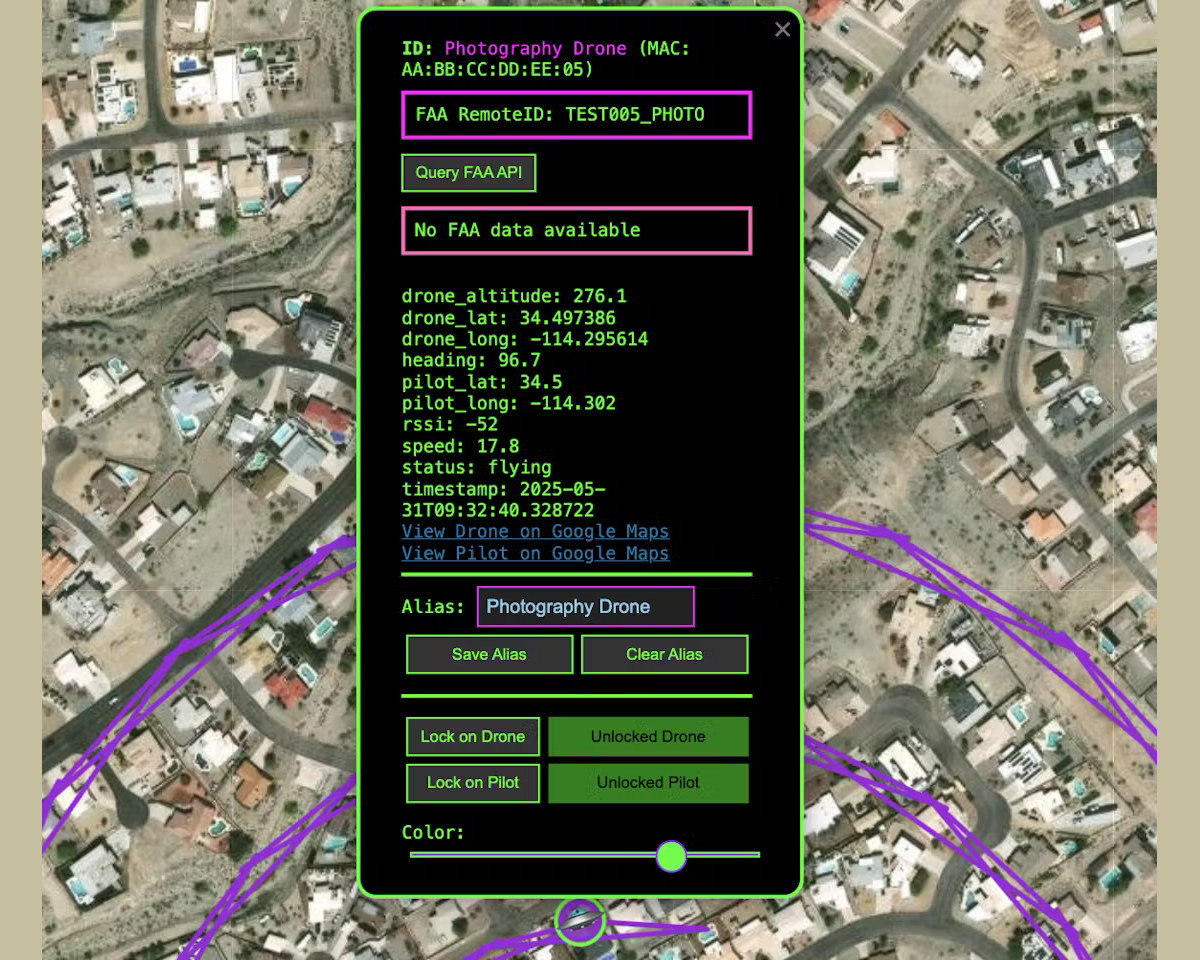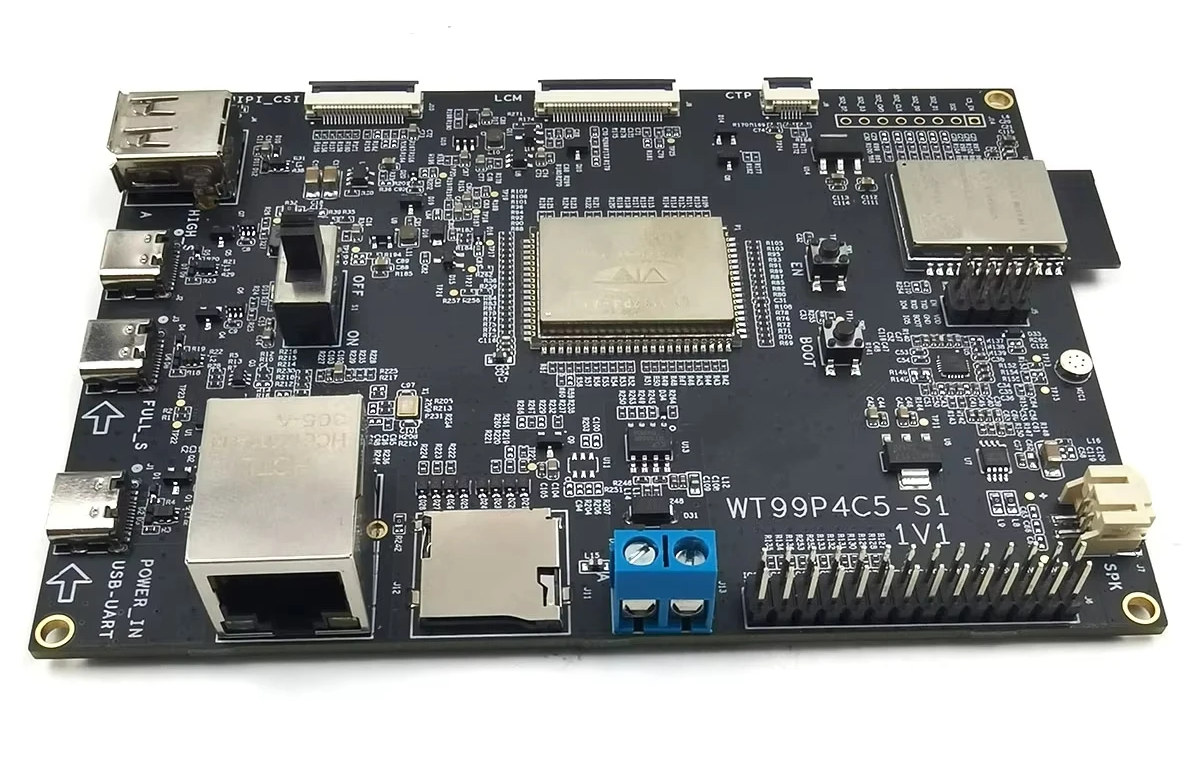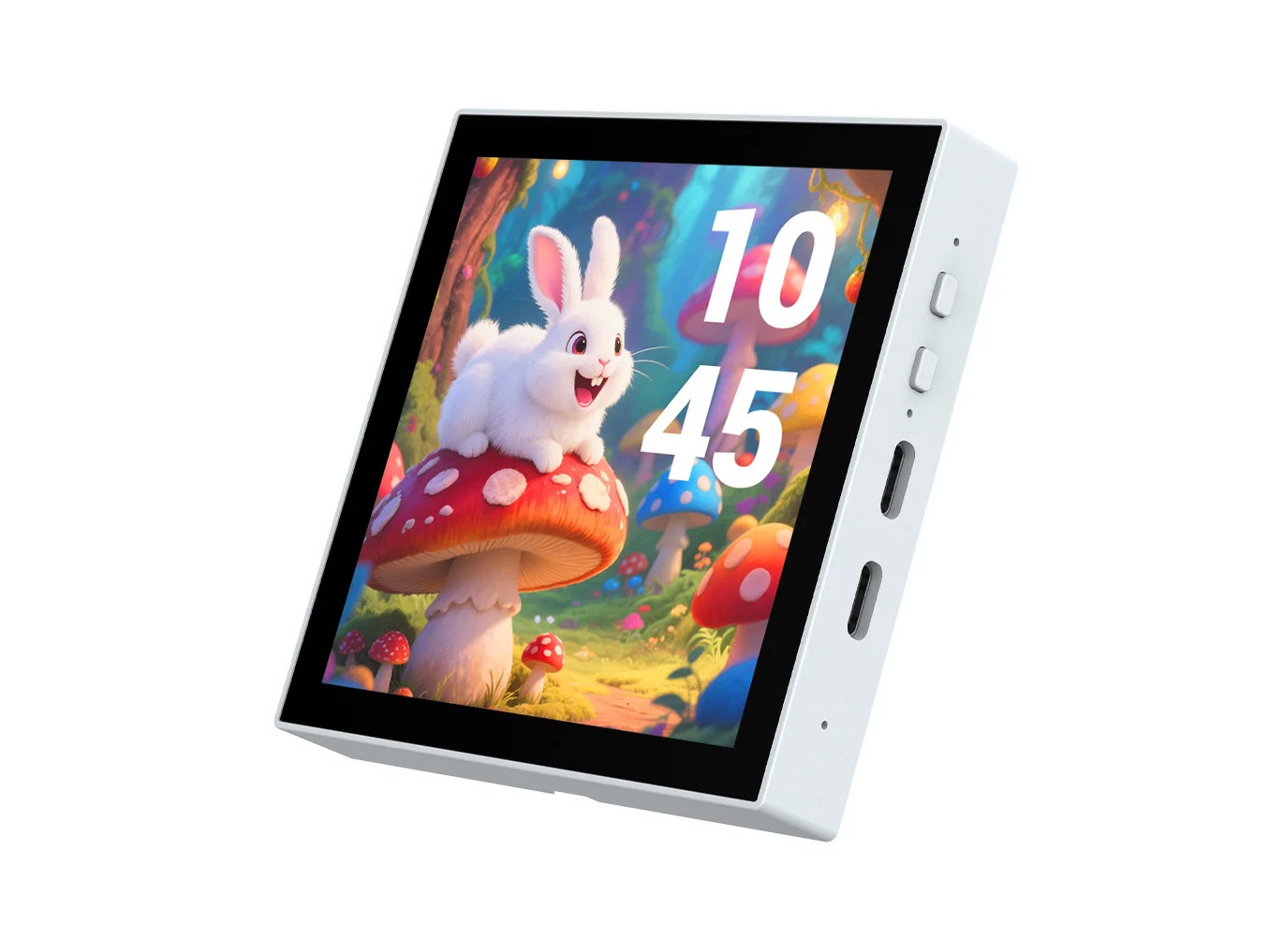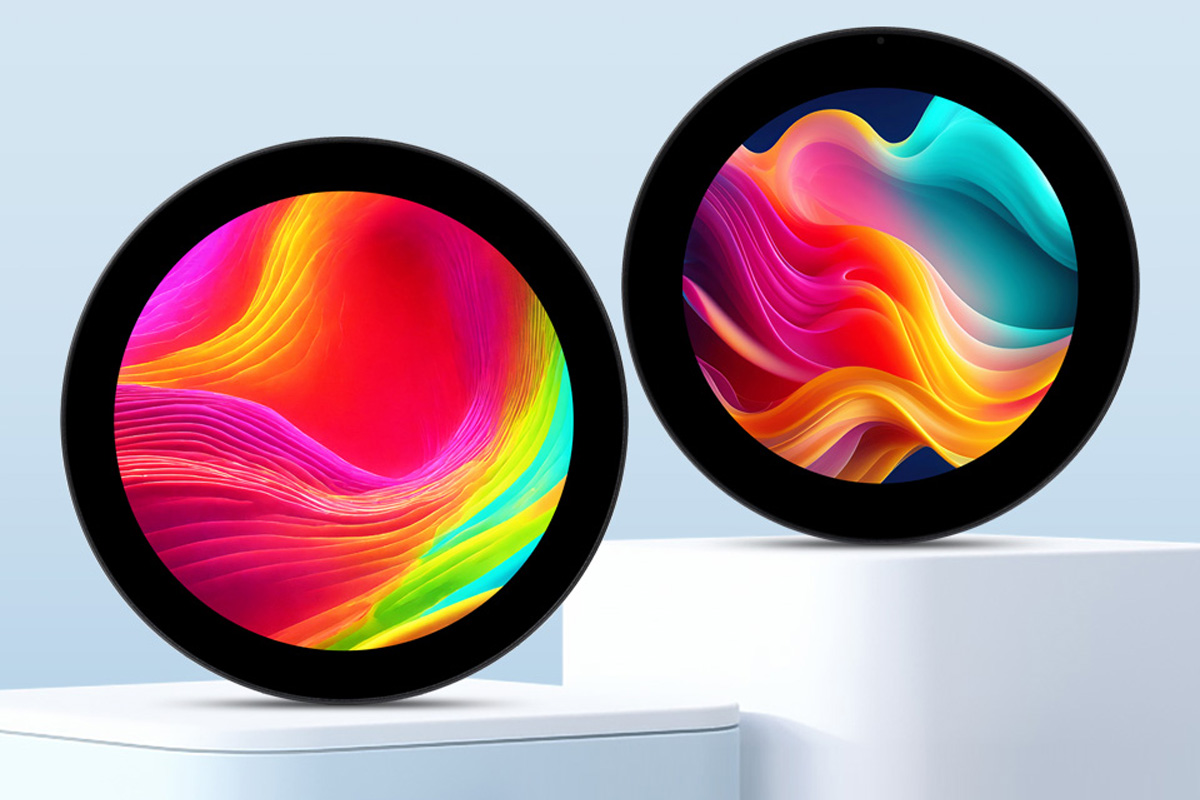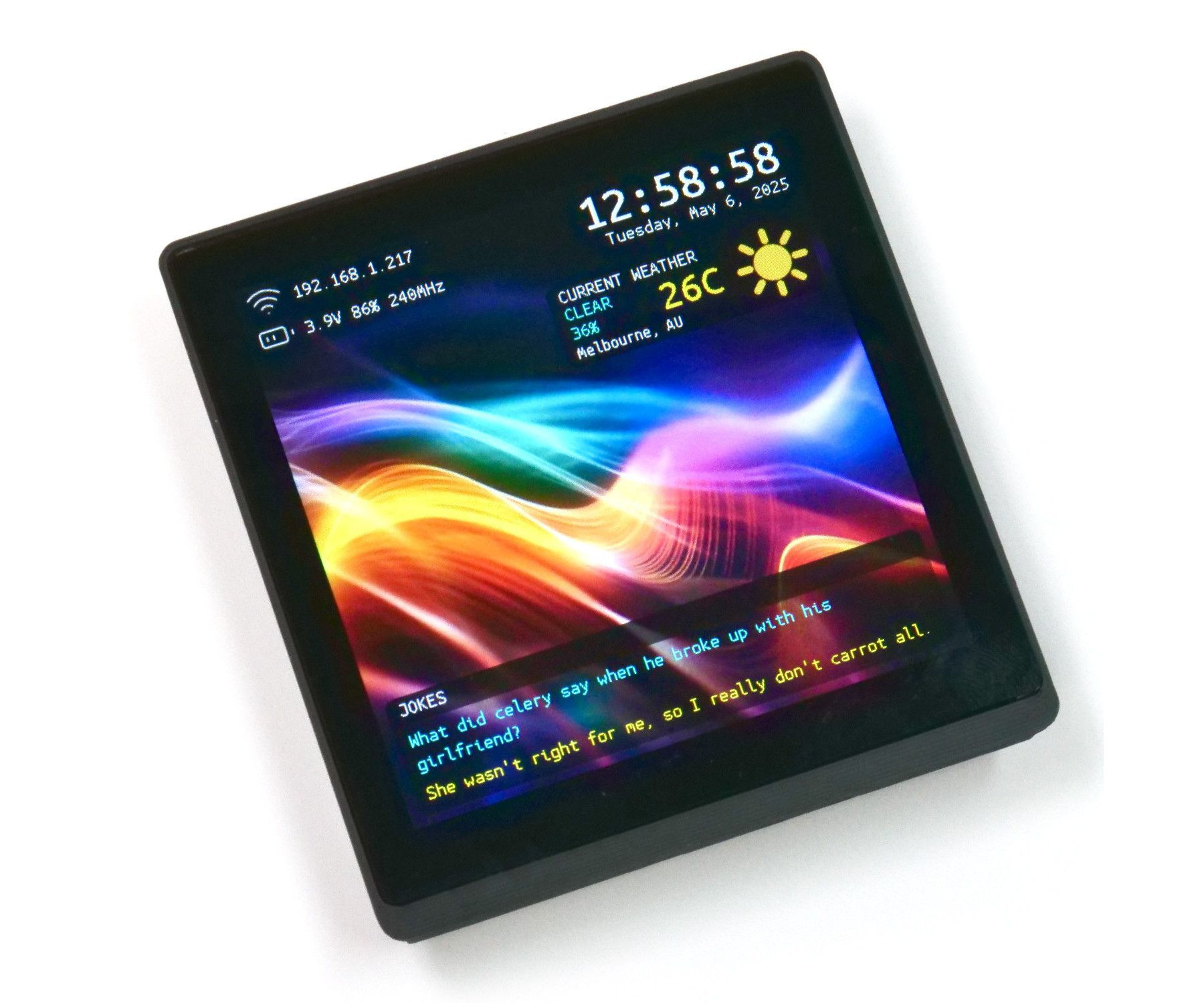Tarun’s BUG is a USB stick with a small display described as an “AI-powered Ethical Hacking Device”, supporting voice control, and offered with either a Raspberry Pi RP2040 dual-core MCU, Espressif Systems ESP32-S3 wireless SoC, or STM32F411 Cortex-M4F microcontroller. The device also features a microSD card for storage, and WiFi and BLE connectivity for the ESP32-S3 version. The BUG is said to offer “cutting-edge HID injection capabilities” (e.g. keyboard/mouse emulation) with wireless control and ChatGPT integration. It is made for ethical hackers, cybersecurity trainers, tech educators, and DIY makers. BUG specifications: Microcontroller (one or the other) Raspberry Pi RP2040 dual-core Cortex-M0+ microcontroller @ up to 133 MHz with 264KB SRAM Espressif ESP32-S3 dual-core LX7 microcontroller @ 240MHz with vector instructions, 512KB SRAM, WiFi 4 and Bluetooth 5.x connectivity STMicro STM32F411 Arm Cortex-M4F MCU @ 100MHz with 512KB Flash, 128KB SRAM Storage – MicroSD card slot inside the USB Type-A port […]
Seeed Studio XIAO-2CH-EM Review: 2-Channel Wi-Fi AC Energy Meter with two CT clamps, ESPHome preloaded
We have received a review sample of an energy metering device from SeeedStudio called the XIAO 2-Channel Wi-Fi AC Energy Meter (XIAO-2CH-EM). This device uses a clamp-on CT (Current Transformer) method on the live wire that you want to measure, without needing to modify the existing electrical wiring. XIAO-2CH-EM comes with several key features such as dual CT sensors (CT1 and CT2), native ESPHome & Home Assistant Integration, precise measurement with factory calibration, and bi-directional power flow monitoring. While the XIAO-2CH-EM has 2 CT input ports, it will only ship with one CT clamp by default, but users can purchase an additional CT clamp if needed. The two CT channels operate independently, and each one can measure bidirectional power and supports devices using up to 100A of current. That should be enough for an ordinary home. The XIAO-2CH-EM comes pre-flashed with ESPHome firmware from the factory, meaning it can be […]
ESP32-P4-MINI development board offers two 34-pin GPIO headers, ESP32-C6 wireless module
Another day, another ESP32-P4 RISC-V MCU board with the ESP32-P4-MINI equipped with an ESP32-C6 wireless module and exposing all I/Os through two 34-pin GPIO headers. The board also features two USB-C ports, one for data and one for debugging, MIPI DSI and MIPI CSI connectors to add a display and a camera, a microSD card slot for storage, and a few buttons and LEDs. It’s basically a board for engineers wanting to access all features of the ESP32-P4 without extra bells and whistles. ESP32-P4-MINI board specifications: SoC – Espressif Systems ESP32-P4 CPU Dual-core 32-bit RISC-V HP (High-performance) CPU @ up to 400 MHz with AI instructions extension and single-precision FPU Single-RISC-V LP (Low-power) MCU core @ up to 40 MHz Memory 768 KB HP L2MEM (for dual-core CPU), 32 KB LP SRAM, 8 KB TCM (for LP MCU core) 32MB PSRAM Storage – 128 KB HP ROM, 16 KB LP […]
Map Remote ID-enabled drones with ESP32-C3/S3 and Meshtastic LoRa modules
Colonel Panic’s Mesh Mapper is a project designed to map drones emitting the FAA’s Remote ID over WiFi or Bluetooth with location, altitude, pilot position, and identification data. This project utilizes an ESP32-C3 or ESP32-S3 to capture Remote ID transmissions within range, and then feeds the data into a Python Flask web application part of Mesh Mapper that provides real-time visualization and logging. Meshtastic allows multiple detection nodes to share information across a mesh network, so several ESP32 nodes can be deployed in an area and be alerted when drones fly within your property or neighborhood. While you could use your own ESP32-C3/S3 board and Meshtastic hardware for this project, Colonel Panic designed a breakout board for XIAO ESP32C3 or ESP32S3 WiFi & Bluetooth module and Heltec LoRa 32 V3 connected over serial to make things easier. Something like the XIAO ESP32S3 for Meshtastic & LoRa devkit might also do, […]
This ESP32-P4 board is equipped with an ESP32-C5 dual-band WiFi 6 module
All ESP32-P4 boards and devkits we’ve covered so far rely on ESP32-C6 for wireless connectivity, but the Wireless Tag WT99P4C5-S1 differs in that it pairs the ESP32-P4 RISC-V SoC with an ESP32-C5 wireless module featuring dual-band WiFi 6, Bluetooth LE 5.0, and an 802.15.4 radio for Zigbee, Thread, and Matter connectivity. The board also features MIPI DSI and CSI connectors for a display and a camera, GPIO headers for the ESP32-P4 and ESP32-C5 modules, a microSD card slot, a Fast Ethernet port, a built-in microphone, a speaker connector, an RS485 terminal block, and a few USB ports for data and debugging. Wireless Tag WT99P4C5-S1 board specifications: Core module – Wireless Tag WT0132P4-A1 SoC – Espressif Systems ESP32-P4 CPU Dual-core 32-bit RISC-V HP (High-performance) CPU @ up to 400 MHz with AI instructions extension and single-precision FPU Single-RISC-V LP (Low-power) MCU core @ up to 40 MHz with 8KB of zero-wait […]
ESP32-P4 Smart 86 Box features 4-inch square touch display for Smart Home and IIoT applications
Designed for Smart Home or industrial IoT (IIoT) applications, Waveshare’s ESP32-P4 Smart 86 Box is equipped with a 4-inch square touchscreen display, an ESP32-C6 module with WiFi 6 and Bluetooth connectivity, and a range of connectors. Two models are offered: the ESP32-P4-WIFI6-Touch-LCD-4B with a MIPI CSI camera connector and a 28-pin GPIO header, and the ESP32-P4-86-Panel-ETH-2RO with a bottom board that features an RS485 serial interface, two relays, a 10/100Mbps Ethernet RJ45 connector, and 6V-30V DC input. ESP32-P4 Smart 86 Box specifications: Main module – ESP32-P4-Core Module Microcontroller – ESP32-P4NRW32 MCU Dual-core RISC-V microcontroller @ 400 MHz with AI instructions extension and single-precision FPU Single-RISC-V LP (Low-power) MCU core @ up to 40 MHz GPU – 2D Pixel Processing Accelerator (PPA) VPU – H.264 and JPEG codecs support Memory – 768 KB HP L2MEM, 32 KB LP SRAM, 8 KB TCM, 32MB PSRAM Storage – 128 KB HP ROM, 16 […]
ESP32-P4 development board features 3.4-inch or 4-inch round IPS touchscreen display
Waveshare ESP32-P4-WIFI6-Touch-LCD-3.4C and ESP32-P4-WIFI6-Touch-LCD-4C ESP32-P4-based development boards feature a 3.4-inch and a 4-inch round IPS display, respectively, a 10-point capacitive touchscreen, and a wide 170° viewing angle. They also integrate two microphones with echo cancellation for voice AI applications and offer Wi-Fi 6 and Bluetooth 5 (LE) connectivity via an ESP32-C6 module. Designed for AIoT and HMI projects, the boards also include USB ports, a camera connector, a speaker connector, and a microSD card slot. Target applications include Smart Home control panels, voice-controlled interfaces, digital dashboards, indoor environmental monitoring, PC performance monitoring, and other secure IoT and edge computing applications. Waveshare ESP32-P4-WIFI6-Touch-LCD-3.4C/4C specifications Main module – ESP32-P4-Core Module Microcontroller – ESP32-P4NRW32 MCU Dual-core RISC-V microcontroller @ 400 MHz with AI instructions extension and single-precision FPU Single-RISC-V LP (Low-power) MCU core @ up to 40 MHz GPU – 2D Pixel Processing Accelerator (PPA) VPU – H.264 and JPEG codecs support Memory – […]
Battery-powered SQUiXL devkit pairs 4-inch touchscreen display with ESP32-S3 WiFi and Bluetooth SoC
Unexpected Maker’s SQUiXL is a battery-powered ESP32-S3 WiFi and Bluetooth IoT controller and development platform with a 4-inch touchscreen display with 480×480 resolution. Designed for makers, hardware engineers, embedded developers, and home automation enthusiasts, the SQUiXL integrates with 8MB PSRAM and a 16MB SPI flash for plenty of resources for the firmware. Other features include a microSD card, an amplifier with speaker connector, a haptic driver and motor, an RTC, and a STEMMA/Qt connector for expansion. SQUiXL specifications: WiSoC – Espressif Systems ESP32-S3 CPU – Dual-core Tensilica LX7 @ up to 240 MHz with vector instructions for AI acceleration Memory – 512KB RAM Wireless – 2.4 GHz WiFi 4 and Bluetooth 5.0 LE + Mesh Memory – 8MB octal PSRAM Storage 16MB QSPI flash MicroSD card slot (multiplexed with audio amplified) Display – 4-inch 480×480 RGB display with capacitive touch (GT911) Audio MAX98357A I2S Audio Amplifier (multiplexed with microSD card […]


